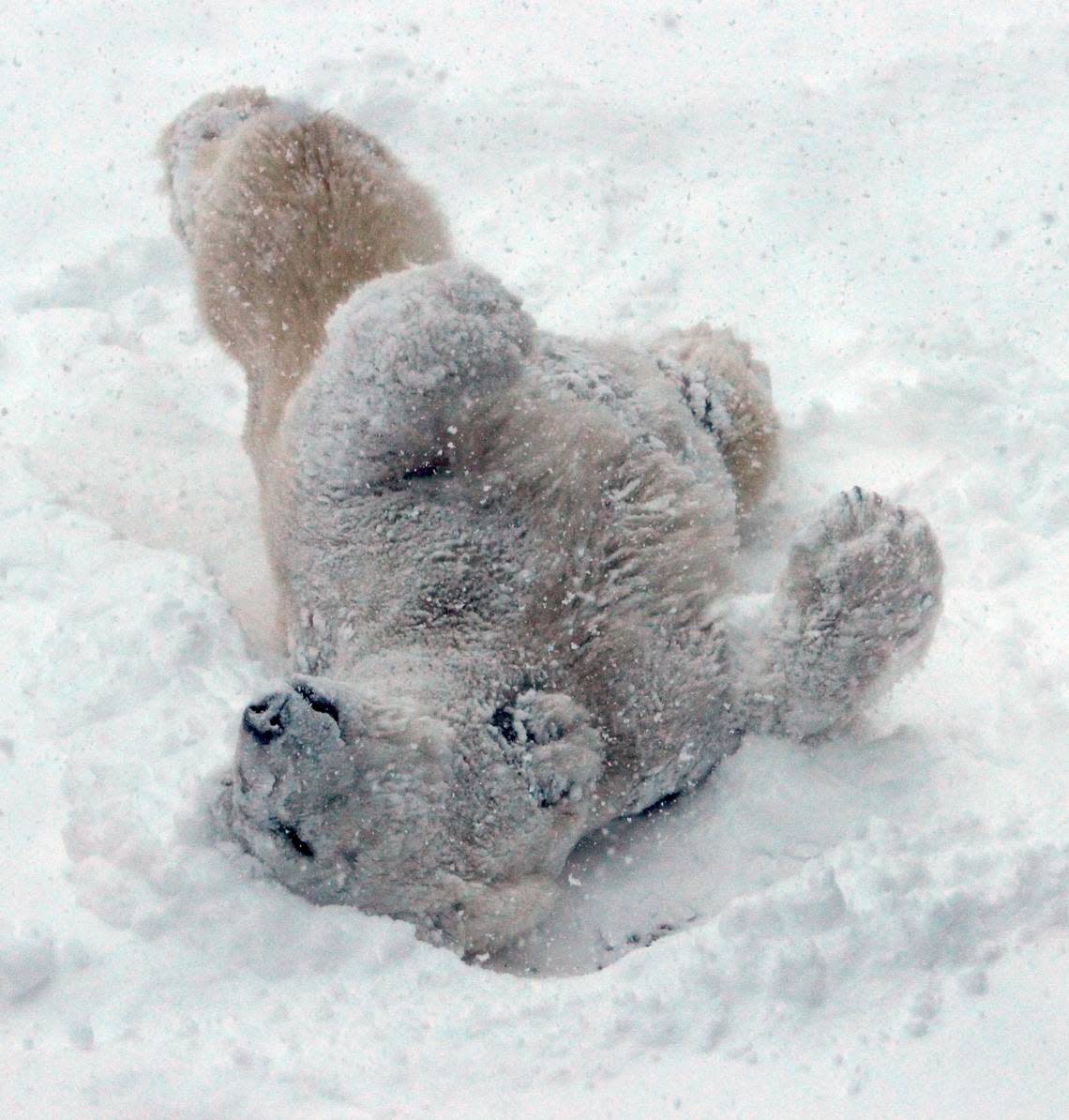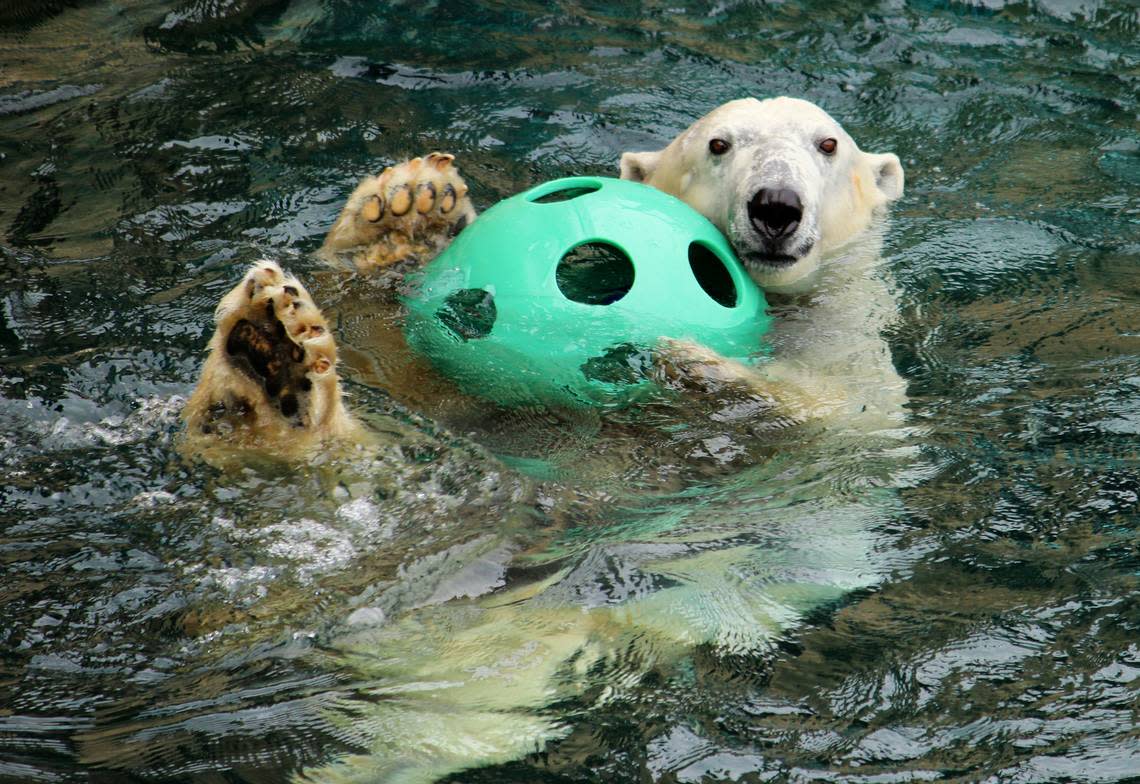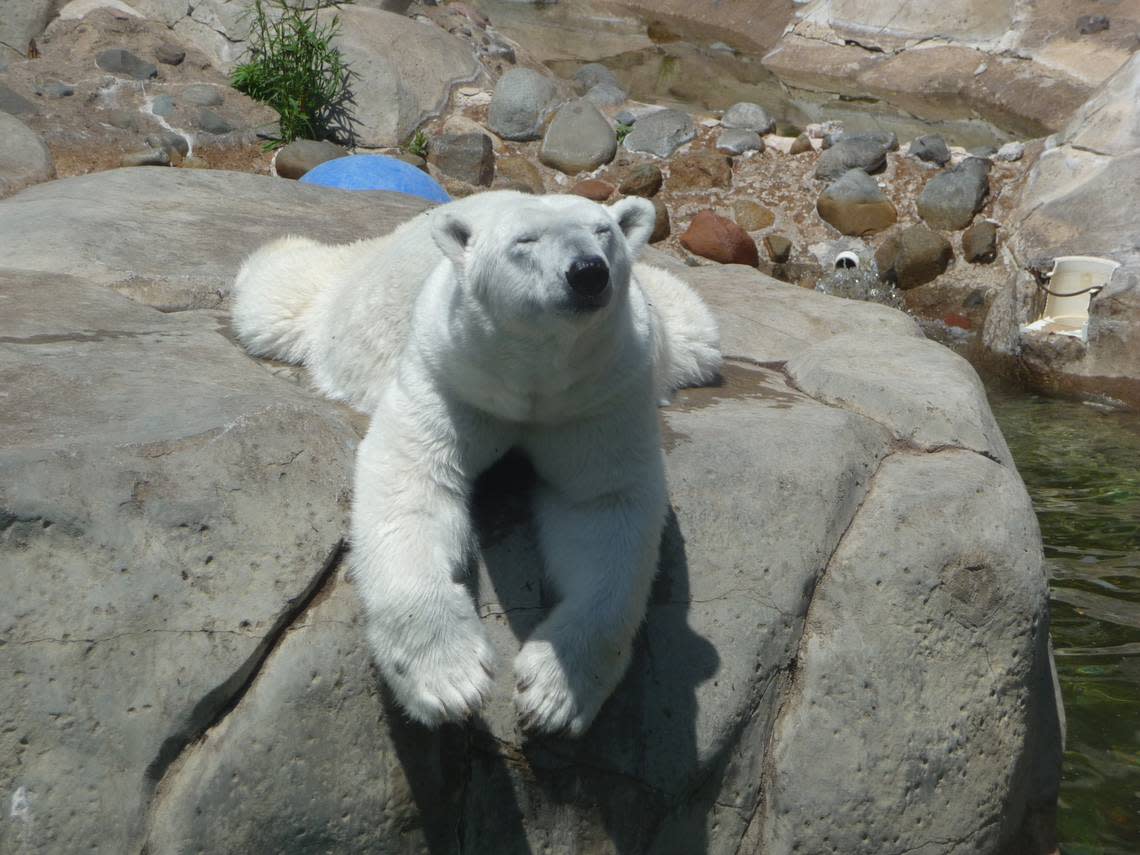Beloved polar bear Berlin, oldest polar bear in a US zoo, euthanized in KC Zoo at 33
Berlin, the beloved 33-year-old polar bear at the Kansas City Zoo, was euthanized after treatment options for health issues had been exhausted, the zoo announced Thursday afternoon.
Berlin, the oldest polar bear in human care in the United States and possibly North America, had been experiencing hypertension, and the decision to euthanize her was made Wednesday morning, the zoo said.
“Berlin was a beloved ambassador for her species and helped contribute to research that has benefited the wild polar bear population,” the zoo said in a news release. “Her animal care specialists commended her big personality and described her as ‘smart and sassy’ and say she gave all of her caregivers ‘a run for their money!’”

Berlin, born Dec. 11, 1989, at the Cincinnati Zoo, was named in honor of the falling of the Berlin Wall, which occurred just over a month before she was born. While residing at Lake Superior Zoo in Duluth, Minnesota, in 2012, Berlin’s habitat flooded and she swam to a perimeter wall where she waited until staff arrived.
She was temporarily housed at the Como Zoo in Saint Paul, Minnesota before arriving in Kansas City in December 2012.
As she aged, Berlin remained in fair health and her personality continued to show. Several years ago, an inoperable mass was discovered in her nasal cavity, but it didn’t seem to bother her, the zoo said.

She had been treated for systemic hypertension, which was diagnosed using a copper-plated-based electrocardiogram built at the zoo. She later was diagnosed with renal failure. While there was no cure, the zoo’s staff was able to make her comfortable through various treatments.
“Unfortunately, Berlin’s health had significantly declined yesterday morning, and it was determined there were no other additional medical options to improve her condition,” the zoo said. “She was euthanized surrounded by her caregivers.”
Polar bears in facilities accredited by the Association of Zoos & Aquariums have a median life expectancy of 23.4 years, according the zoo. Polar bears in the wild live an average of 15 to 18 years, according to Polar Bears International, the zoo’s conservation partner.
“Berlin will be dearly missed by her Zoo family, including staff, volunteers, and guests,” the zoo said. It plans to make its annual contribution from the zoo’s Conservation Fund to Polar Bears International in her memory.

